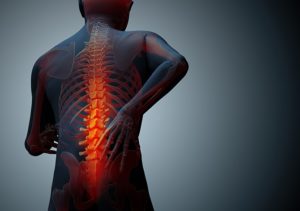Many people struggle for years trying to cope with the pressures of working while dealing with a disabling physical or mental impairment. Finally, they realize they can no longer go on and apply for disability. After months of waiting, they are shocked to learn the Social Security Administration has issued a denial in their case; what can be done?
Are denials common?
The short answer is “yes.” According to the SSA website, far more applicants are denied than approved. A look at the numbers:
- Over 2,000,000 disability applications are submitted each year
- Of those, approximately 31 percent are not evaluated for disability but are instead given what is called a “technical” denial
- Of the 69 percent that are reviewed by the SSA for disability, over 60 percent are denied benefits
What is a technical denial?
There are a variety of reasons for a technical denial, and they begin with an incomplete application. The disability process requires a great deal of information concerning the claimant’s work history, educational background, medical records and personal data. A failure to provide all that is required may trigger a denial.
Other technical denials involve a worker having insufficient work credits to qualify for disability, or perhaps the worker is still employed and is making too much money. In any case, the SSA provides a written explanation of the grounds for the denial.
What happens when the disability claim itself is denied?
If a claimant has met the threshold requirements for the SSA to evaluate his or her claim, the application is evaluated under a five step process, which includes:
- Is the claimant working?
- How severe is the claimant’s impairment(s)?
- Does the claimant’s condition meet or exceed SSA’s Listing of Impairments?
- Can the claimant do the type work that he or she did previously?
- Can the claimant do any other type of work?
A failure of the claimant to meet the requirements at any stage of this sequential process will result in the disability examiner’s issuance of a denial.
Is there a realistic hope to win disability benefits after a denial?
The good news is that the SSA has an established system of appeal that may be pursued. The bad news is that the denial numbers, at least on the first level of appeal, are even worse than on the initial application. Although less than half of the denied claimants appeal, more than 90 percent of those are denied again at the next stage, called reconsideration. Reconsideration is essentially the same process as the initial review but with a different examiner.
What happens after reconsideration?
The reality is that most people give up and accept the denial; only about 18 percent appeal a denial at reconsideration. For those that do persevere, however, statistically, there is reason for optimism. Of those that make it to the next level, the administrative law hearing, over 80 percent are awarded benefits.
What happens at the administrative law hearing?
An administrative law judge holds a hearing in which the entire case is reviewed anew. The claimant and supporting witnesses may testify, as well as medical and vocational experts the judge may wish to hear.
Why is this hearing so important?
Every case is different, but the primary reason the administrative hearing is so critical is because it is the first time the claimant gets to speak for him or herself. The judge weighs the testimony and evidence carefully.
Do I need an attorney?
You do not need legal counsel at any stage of the disability process, but you are legally entitled to such representation if you so desire. Once a claimant gets to the administrative hearing, it is prudent to retain an experienced social security disability lawyer. This is the best chance to win the claim and the hearing process, which is similar although less formal than a trial, is more than most people are able to handle on their own.
It is important to understand that the Social Security Disability application process is a complex maze of rules and regulations. It requires you to follow established procedures, and perhaps most of all, be persistent. If you are eligible and cannot work because of a physical or mental impairment, be certain to do all you can to receive the benefits you deserve.





























